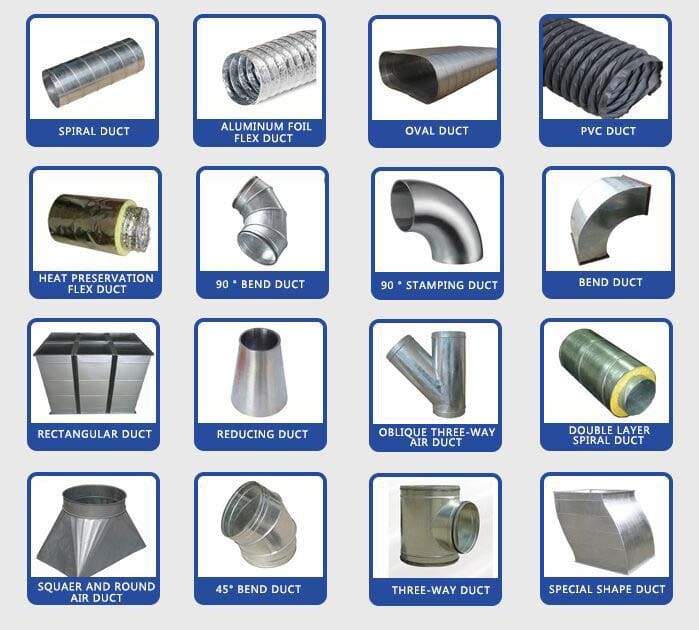Picking an ideal HVAC system for your home can appear challenging, notably with so many selections and technical details to consider. Regardless of whether why not try this out are building a brand new house, renovating, or merely aiming to enhance your current system, grasping the meaning of HVAC and how it works is crucial. HVAC refers to temperature control, air circulation, and air conditioning, and it plays a significant role in ensuring your home is comfortable throughout the year. This beginner's guide will walk you through the main elements of HVAC systems, typical challenges and their resolutions, and maintenance tips to keep your system running efficiently.
As you explore the multiple categories of HVAC systems that are offered, you will find that they each feature unique attributes and pros. From classic central air systems to contemporary ductless mini-splits and geothermal heat pumps, the choices can be intimidating. Grasping the influence of different systems on energy efficiency and indoor air quality can help you make a knowledgeable choice that addresses your comfort needs but also aligns with your spending limit. By the end of this article, you will be prepared with valuable knowledge to make the best HVAC choice for your home and experience a comfortable living environment year-round. spintax ### Understanding HVAC Units
HVAC stands for Heat, Air Flow, and Temperature Control, the three key components that ensure maintaining indoor comfort. An HVAC system manages climate, dampness, and air freshness throughout domestic and commercial spaces. Knowing air conditioner of these components is essential for choosing the right system for your residential space or company. Heating systems consists of various techniques to heat indoor spaces, while air conditioning lowers the temperature of and reduces humidity in the air. Airflow provides a continuous circulation of new air to ensure a healthy environment.
An HVAC system generally consists of a heating unit or heating pump for heating, an air conditioning unit for temperature reduction, and ventilation ducts or other means of spreading conditioned air across the space. Modern systems may additionally include intelligent thermostats, air cleaners, and moisture management features, that boost both ease and energy conservation. By enhancing these components, property owners can attain a satisfying living setting while minimizing energy bills.
Additionally, understanding the interplay of these components can assist in solving frequent issues and making informed decisions about care and enhancements. Regular maintenance and prompt repairs are crucial to lengthening the lifespan of an HVAC system. As technology progresses, latest innovations arising within the HVAC industry offer improved efficient energy use and superior indoor air cleanliness, further benefiting health and well-being in houses and work spaces as well.
Typical HVAC Issues and Solutions
One of the typical issues homeowners face with their HVAC units is insufficient heating or cooling. This problem can arise from multiple sources, including a filthy air filter, which limits airflow and reduces efficiency. An additional potential cause is incorrectly sealed ductwork, which can lead to substantial energy waste. To address this problem, begin by checking and replacing air filters on a regular basis, and check ductwork for any leaks that require sealing.
Another prevalent problem is the strange noises coming from the HVAC system, such as rattling, thumping, or hissing. These sounds can indicate technical problems or loose components. The first step is to ensure that mounting brackets and screws are tight. If the sounds remain, it may be necessary to contact a qualified technician who can diagnose and resolve deeper mechanical issues competently.
Lastly, a malfunctioning thermostat can lead to significant discomfort and energy inefficiency. If your HVAC unit is running continuously or not reacting to temperature changes, recalibrating or replacing the thermostat could be a feasible solution. Smart thermostats provide extra benefits, such as programming features and remote access, helping homeowners improve their heating and cooling settings while maybe lowering energy bills.
HVAC Efficiency and Maintenance Tips
To confirm your HVAC system functions efficiently, one of the key approaches is regular maintenance. Arranging seasonal tune-ups can help identify potential problems before they worsen, making sure that your system operates smoothly throughout the seasons. A qualified technician can clean the coils, inspect refrigerant levels, and inspect other critical components, which can lead to enhanced performance and durability of your system.
Moreover, being aware of your thermostat settings can greatly impact your energy bills. During the winter months, setting your thermostat a couple degrees lower while dressing in warmer clothing can reduce heating costs. In summer, raising the temperature a couple degrees can lower air conditioning expenses while still keeping your home pleasant. Consider installing a smart thermostat that intelligently adjusts based on your schedule or the weather, optimizing energy use.
Lastly, improving your home’s insulation and sealing air leaks can be very effective for your HVAC efficiency. Insulating walls, attics, and ductwork reduces energy loss, while weatherstripping windows and doors prevents conditioned air from leaking out. By taking these steps, not only do enhance the comfort of your home, but you also create a more energy-efficient environment, causing lower utility bills and a smaller carbon footprint.

